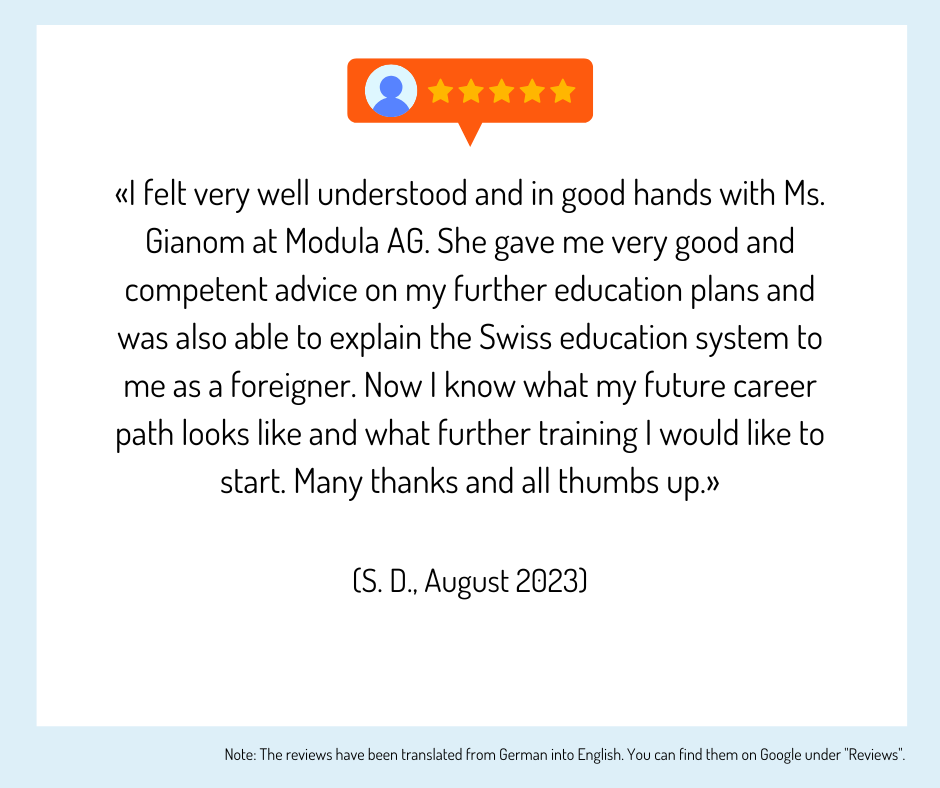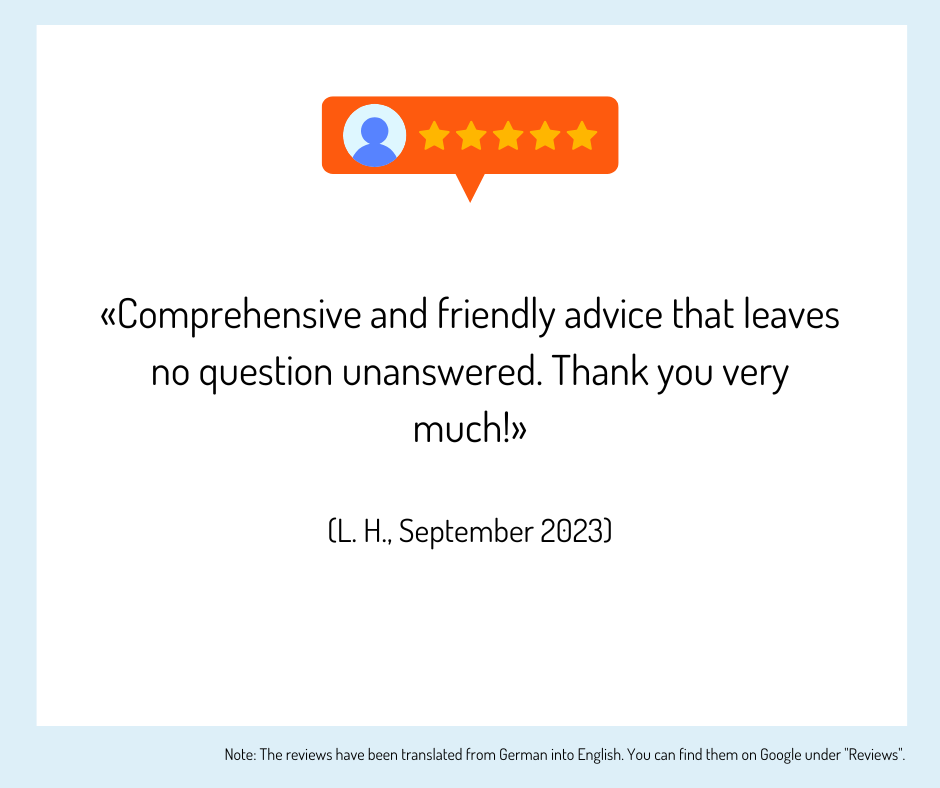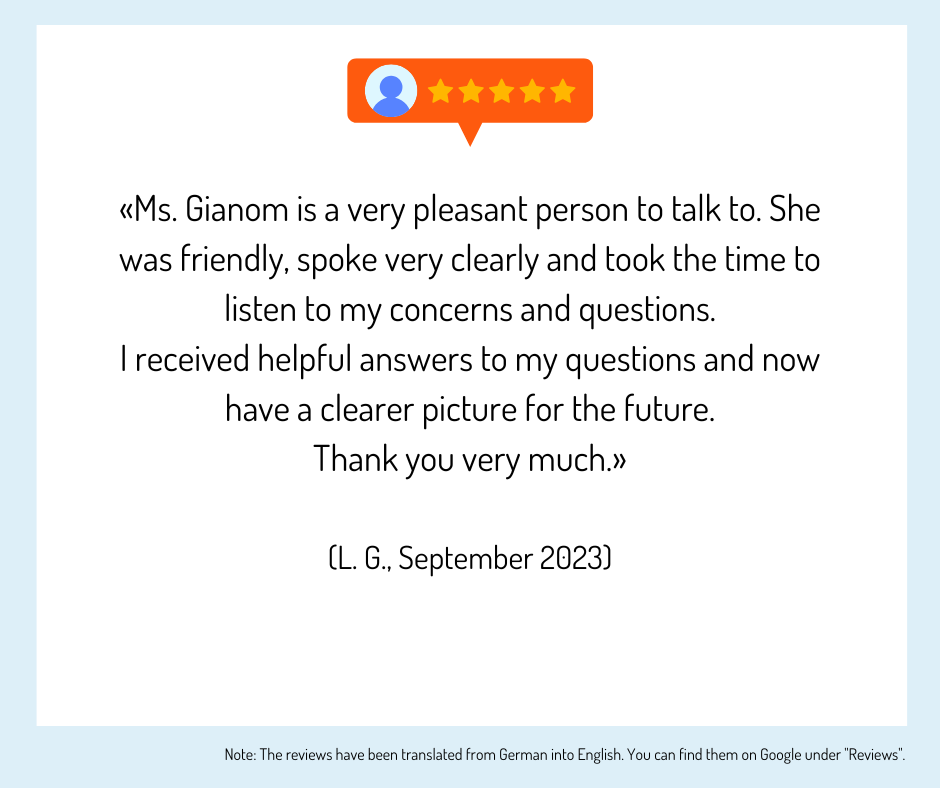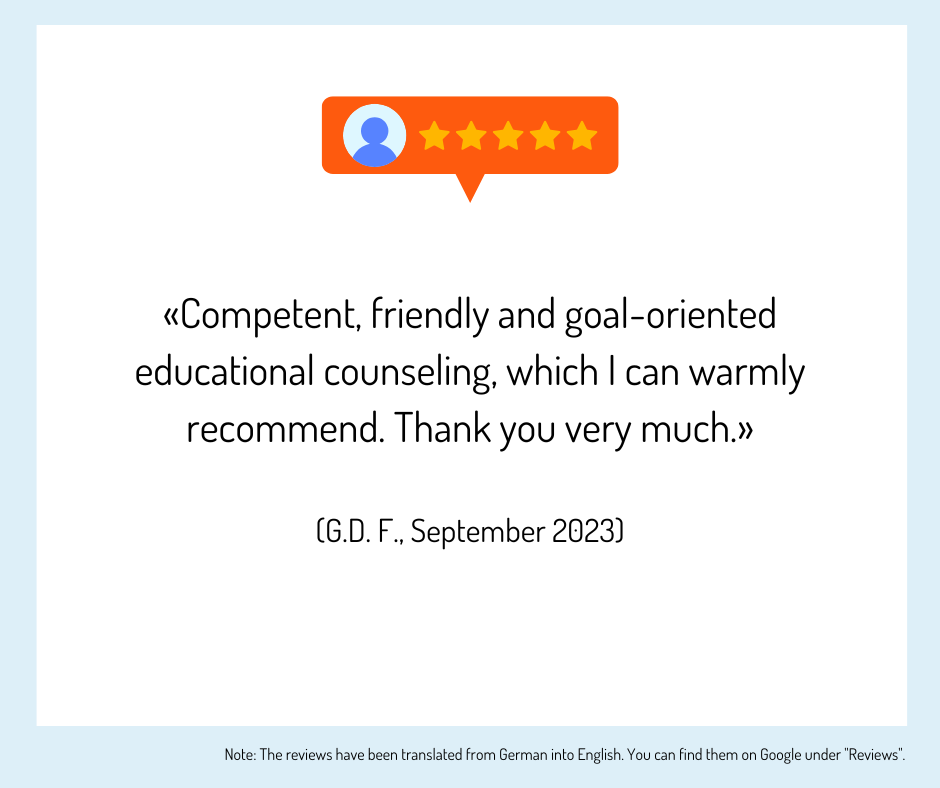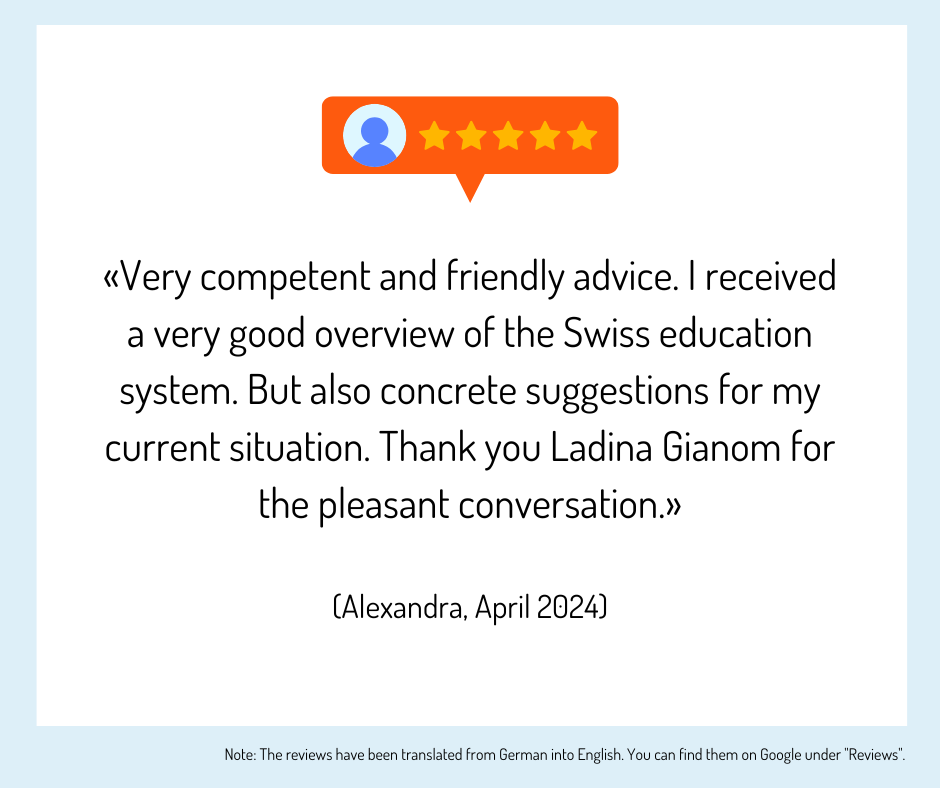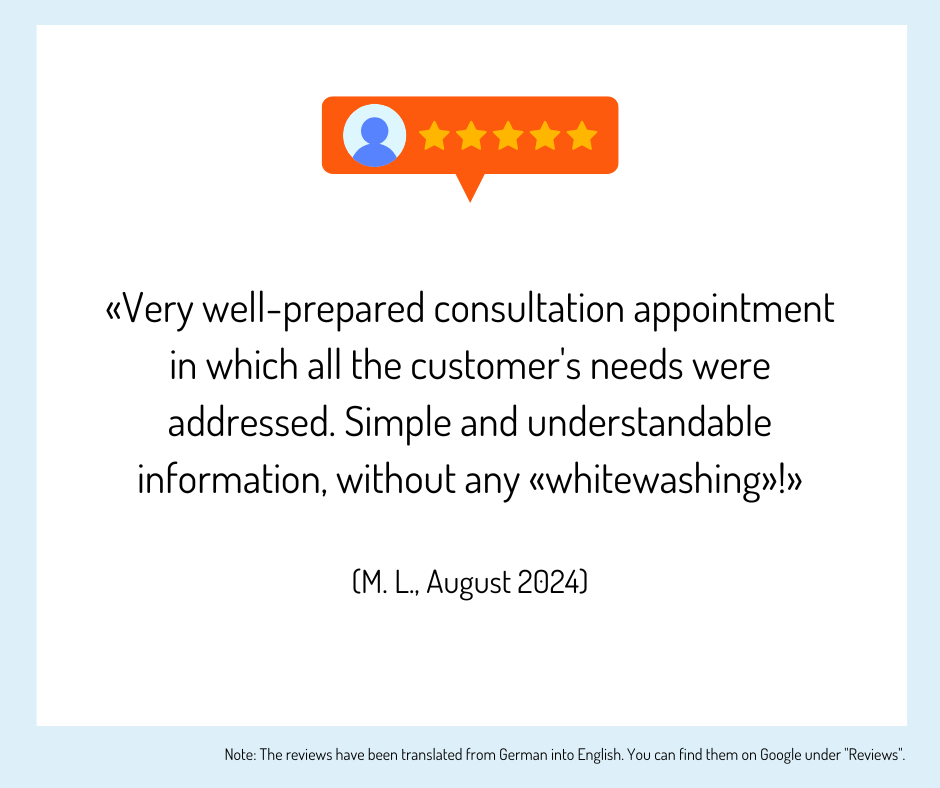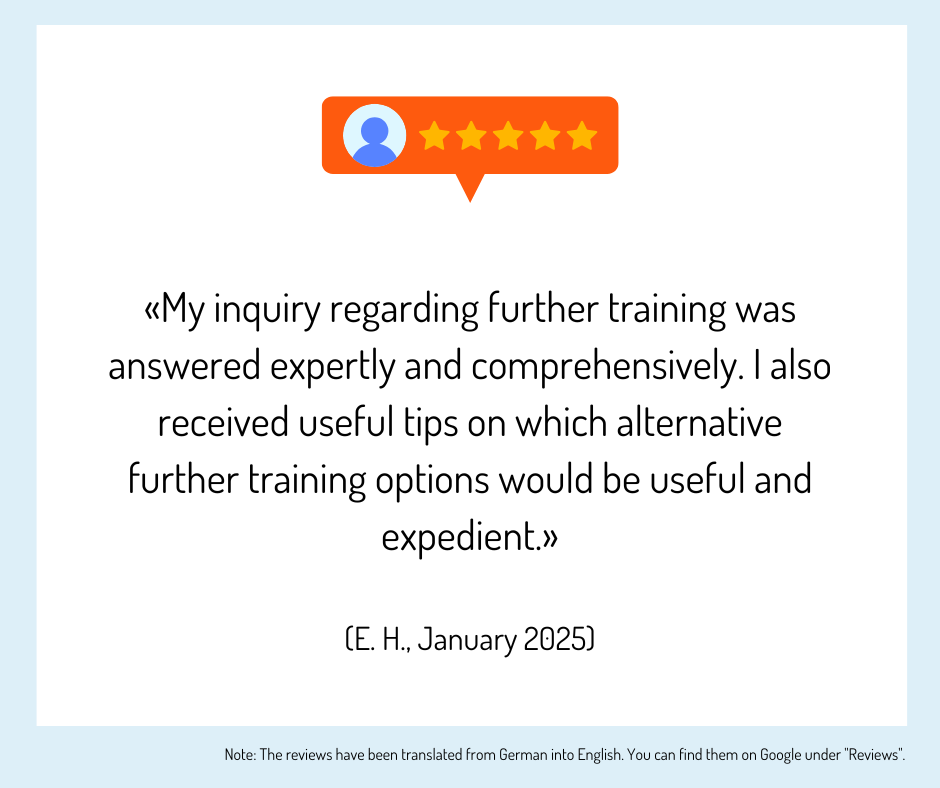Autogenic training (cert.) (Region Bern):
1 Provider
Request convenient free information on Autogenic training: overview of courses, training, continuing education, further training, schools from the providers of your choice below now.
Sofort zur richtigen Weiterbildung
Education location / Schools Bern
Questions and answers
Autogenic training to fall asleep: Can autogenic training help you fall asleep?
Autogenic training is known for reducing stress and as a relaxation technique. Autogenic training is therefore just as suitable for falling asleep. Autogenic training can also help you to fall asleep and/or sleep through the night. The holistic effect on body, mind and soul, including the subconscious, can also be used to treat sleep disorders.
How long does an autogenic training course last?
If you would like to get to know and try out autogenic training for yourself, many schools, medical practices and fitness studios offer you the opportunity to try it out in short seminars lasting around 7 course days. If you would like to attend an autogenic training course to become an AT teacher, you will need a little more time. Each school has its own time periods and course days, but you should reckon with about a year of training, which often takes place in block seminars. Check with the school of your choice to find out how long the courses last.
Do autogenic training exercises help with relaxation?
Autogenic training used to be known as "concentrative self-relaxation" and includes various techniques for light self-hypnosis. It is one of the best-known and most successful relaxation methods in the world. The aim is to regulate breathing and calm down. During autogenic training exercises, the subconscious is told to relax, which requires some practice. Over time, however, practitioners are able to recall this state at any time and induce relaxation in a targeted manner, whether before a job interview or an exam, a first date or in hectic family situations, in stressful situations at work or with children. Autogenic training exercises alleviate ailments such as headaches or depression, help you to stop smoking and improve your ability to concentrate. It is best practised with an experienced trainer who explains this method from the ground up and practices it with you until you have mastered it independently and can use it individually at any time.
Autogenic training: How does autogenic training reduce stress?
Autogenic training is a proven method for reducing stress. Autogenic training is a simple relaxation method and increases your resources. The autosuggestion acts on the autonomic nervous system - the system that cannot be influenced at will and regulates your blood pressure and breathing, for example. The exercises lead you into deep relaxation - the foundation for physical and mental health. And relaxation also helps to reduce stress.
Autogenic training instructions: What exactly is autogenic training?
The term autogenic training refers to a relaxation method that not only cures emotional and mental exhaustion, anxiety, concentration problems, nervousness and other psychological distress, but can also alleviate physical complaints such as sleep disorders, digestive problems, high blood pressure, headaches, asthma and circulatory disorders. This complementary medical method is divided into three levels, the basic level or lower level, the intermediate level and the upper level. In an autogenic training course, you will learn six basic level exercises for autogenic training instruction, which are:
- Breathing regulation
- Experience heaviness
- Experience warmth
- Heart regulation
- Forehead cooling
- Belly heat
In the intermediate level, preconceptions are formulated, but these are usually preceded by the exercises of the basic level. In the upper level, on the other hand, many different methods are used to tap into the unconscious, which can vary depending on the teacher. With the knowledge gained, graduates can practise the autogenic training instructions.
What knowledge does an autogenic training course give me?
Depending on the type of course you choose, you can either gain a brief insight into autogenic training or be fully trained as a teacher or trainer. The content of the individual courses also varies depending on the school, so it is not possible to give a general answer to the knowledge taught. However, here is an example of the skills that a one-year course can teach you:
- Explain stress, factors and effects
- Introduction to autogenic training (AT)
- Conduct initial interviews
- Instruct basic exercises according to Schultz
- Accompany AT short version
- Conducting targeted client meetings
- Developing individual AT therapy
- Explaining and creating autosuggestion
- Use the Anti-Phobia Program (APP)
- Implementation of mental training (such as smoking cessation or weight reduction)
- Promote self-knowledge and self-realization
- Apply exercises from the upper level according to Schultz
- Design and instruct your own exercises for the upper school
- Concept development of own courses
- Paths to self-employment (practice development, marketing)
Autogenic training course: What does an autogenic trainer do?
An autogenic trainer can carry out the following activities after the autogenic training course:
- to accompany people into an optimal state of relaxation using the autogenic training method (in groups or individually) and to use it effectively on their own
- Perform exercises where the focus is on heaviness in the body and warmth
Instruct resting exercises - Help patients to regulate themselves on the 3 levels - i.e. to calm their thoughts, control their emotions or reduce tension in parts or regions of the body
- Supporting patients individually and effectively in all life situations
- Helping patients to master life's challenges, break new ground and recognize potential
- Instruction Autogenic training as a tool for everyday life
Is an autogenic training course recognized?
The Swiss Society for Autogenic Training (SAT), like the Empirical Medicine Register (EMR), has very specific requirements for methods in the field of complementary medicine. In particular, a certain number of hours must be demonstrated in order to be able to apply for registration of the method after the autogenic training course. In the case of the EMR, this is 150 hours for both experiential medicine and conventional medicine. Such registration is often necessary in order to be able to bill the supplementary health insurance companies.
Who prefers online autogenic training courses?
An educational survey shows whether autogenic training online is currently the most desired form of instruction:
- 32 percent want face-to-face teaching (down 5 percent on the previous year)
- 26 percent want hybrid teaching (combination of face-to-face and online, up 3 percent on the previous year)
- 25 percent prefer autogenic training online (plus one percent more)
- 17 percent are undecided (plus one percent more)
Autogenic training: What information about lecturers is important to prospective students?
According to a survey of prospective students, the following information about lecturers is most important (multiple choice possible):
- 61 percent Subjects
- 58 percent Teaching methodology
- 53 percent professional experience of lecturers
- 49 percent Current activity and function
- 44 percent Training and further education
- 31 percent Video of a teaching sequence
- 28 percent Portrait image
- 22 percent Introduction video
- 20 percent personal ratings
- 16 percent success to date
- 7 percent linking with social media profiles (Xing, LinkedIn)
- 6 percent Hobbies
Training in autogenic training: Is it possible that I can also offer this method in my practice after a relaxation training course such as autogenic training?
There are a whole range of providers in the field of relaxation medicine who offer courses that qualify you as an expert in relaxation training upon completion. Training and further education in various relaxation methods such as autogenic training, progressive muscle relaxation, yoga, massages, mindfulness training, meditation, visualization or hypnosis can be used both for your own needs and, after an intensive seminar, for professional purposes. When choosing an autogenic training course, make sure that it corresponds to your professional goals.
Learning autogenic training: Are there admission restrictions for a course in autogenic training?
In most cases, course participants are not expected to have any previous knowledge. This means that anyone can learn autogenic training. However, training in autogenic training is often aimed at educational, medical or psychological professionals as well as people who work in the health or sports sector in general and would like to support their patients with this method in the future. To be on the safe side, find out about the applicable admission requirements from the training institutes in question.
Info, tips & tests for "Autogenic training (cert.)"
Erfahrungen, Bewertungen und Meinungen zur Ausbildung / Weiterbildung
Haven't found the right training or further education yet? Benefit from educational advice now!
Further training is not only important in order to maintain or increase professional attractiveness, investing in training or further training is still the most efficient way to increase the chances of a pay rise.
The Swiss education system offers a wide range of individual training and further education opportunities - depending on your personal level of education, professional experience and educational goals.
Choosing the right educational offer is not easy for many prospective students.
Which training and further education is the right one for my path?
Our education advisory team will guide you through the "education jungle", providing specific input and relevant background information to help you choose the right offer.
Your advantages:
You will receive
- Suggestions for suitable courses, seminars or training programs based on the information you provide in the questionnaire
- An overview of the different levels and types of education
- Information about the Swiss education system
We offer our educational counseling in the following languages on request: French, Italian, English
Register now and concretize your training plans.
